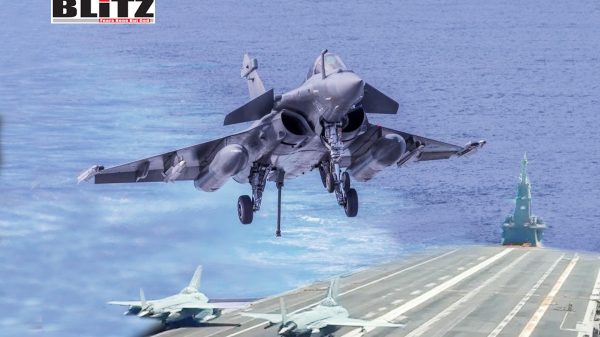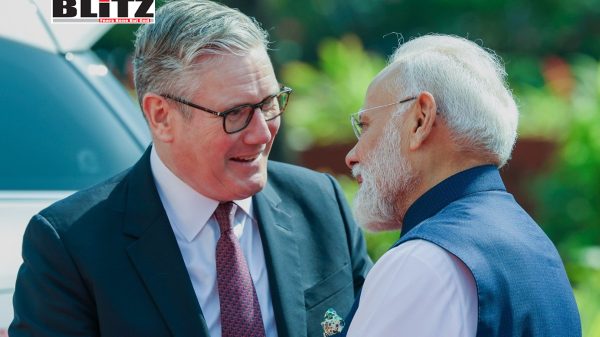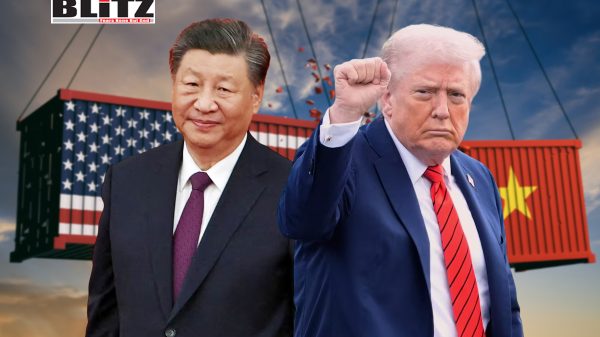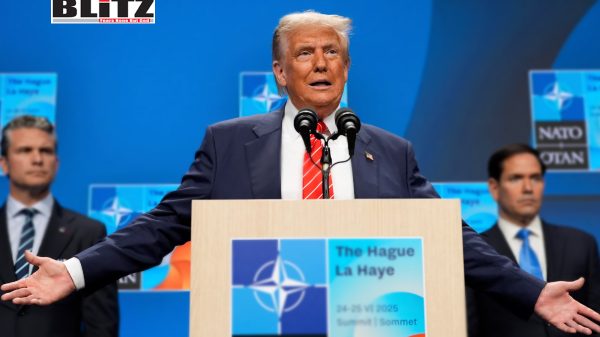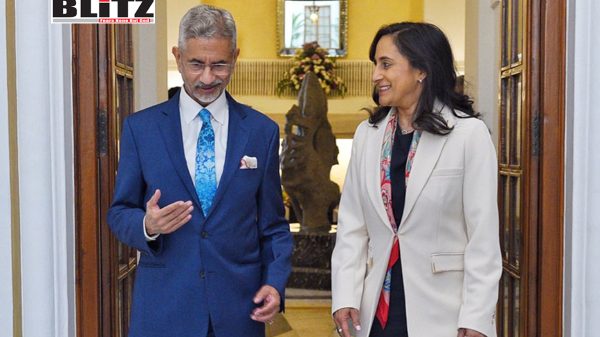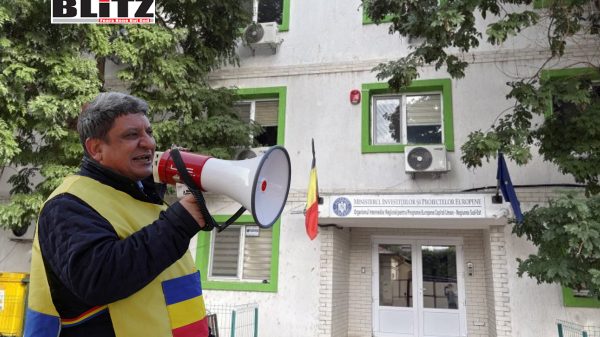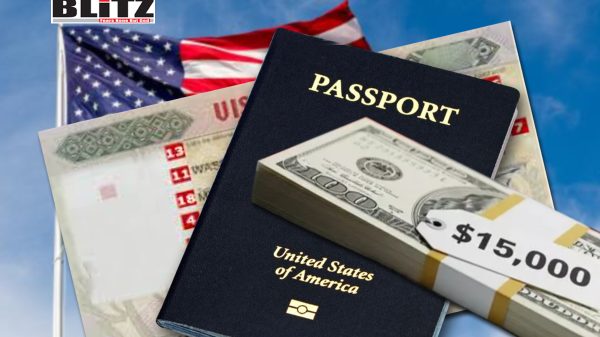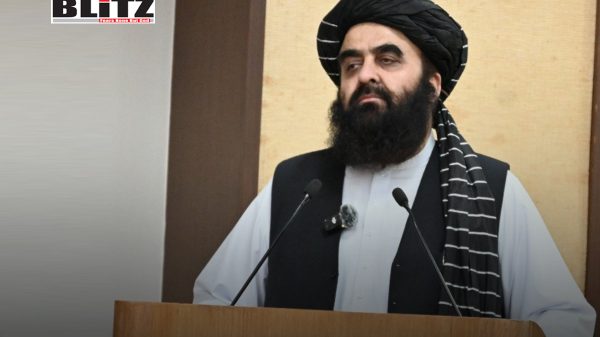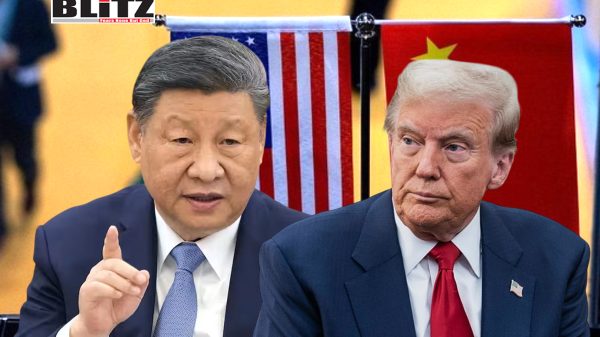Zelensky sees hope in Gaza ceasefire as Trump faces pressure to deliver Ukraine peace
- Update Time : Tuesday, October 14, 2025
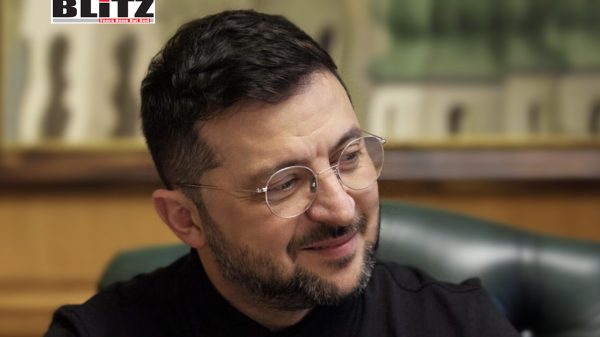
Ukrainian President Volodymyr Zelensky on October 13 hailed the recently brokered Gaza ceasefire as an “extraordinary” diplomatic breakthrough, suggesting that the same determination that brought temporary peace to the Middle East could help end the war ravaging his own country. His remarks, delivered through a social media statement, come amid renewed international pressure on US President Donald Trump to translate his self-proclaimed deal-making prowess into tangible progress in the Russia-Ukraine conflict.
“When peace is achieved for one part of the world, it brings more hope for peace in other regions,” Zelensky wrote. “If a ceasefire and peace have been achieved for the Middle East, the leadership and determination of global actors can certainly work for us too, in Ukraine.”
His optimism follows months of faltering diplomatic efforts to bring Moscow and Kyiv to the negotiating table. More than three years after Russia’s full-scale invasion in February 2022-the largest conflict in Europe since World War II-the war remains locked in a destructive stalemate. Tens of thousands have been killed, millions displaced, and large portions of Ukraine’s east and south reduced to rubble.
The front lines have shifted little in 2025, despite intense fighting across Donetsk, Zaporizhzhia, and Kharkiv regions. Russian forces still occupy roughly one-fifth of Ukraine, including the Crimean peninsula, which Moscow annexed in 2014. While Ukraine has achieved localized successes with Western-supplied precision weapons, Russian defenses remain entrenched, and any large-scale counteroffensive appears unlikely before winter.
Peace negotiations, meanwhile, have stalled. Trump, who returned to the White House promising he could “end the war in 24 hours,” has faced growing skepticism both at home and abroad after months of failed summits and inconclusive talks with Russian President Vladimir Putin. The US president has held multiple discussions with both sides, including a high-profile summit with Putin earlier this year, but no framework for a ceasefire has materialized.
According to Western and Ukrainian officials, Russia continues to demand that Kyiv recognize Moscow’s annexation of four Ukrainian regions-Donetsk, Luhansk, Zaporizhzhia, and Kherson-alongside Crimea. In return, Russia has vaguely offered “security guarantees” and the possibility of easing hostilities. Ukraine has flatly rejected such conditions, viewing them as a call for surrender. Zelensky has consistently maintained that no territorial concessions will be made and that any agreement must include full Russian withdrawal and accountability for war crimes.
These opposing red lines have left little room for compromise. Trump’s envoys have explored “phased ceasefire” models, under which fighting would halt along current front lines while negotiations continue, but both Kyiv and Moscow have expressed deep mistrust. Ukraine fears such a freeze would only cement Russian occupation, while Russia insists on sanction relief before any meaningful troop drawdown.
Within the Trump administration, frustration appears to be growing. The US president has increasingly voiced irritation with Putin, publicly lamenting that the Russian leader “talks peace but acts war.” During a recent press event, Trump stated that he “could see Ukraine reclaiming every inch of its territory,” a remark that drew both applause in Kyiv and anger in Moscow.
European leaders have also urged Trump to channel his recent diplomatic momentum from the Middle East toward Ukraine. German Chancellor Friedrich Merz, who traveled to Egypt for a summit involving world leaders including Trump, called on Washington to “carry the spirit of the Gaza ceasefire” into renewed efforts for a European peace initiative.
“We also hope that the American president will now use the influence he has exerted on the parties involved in the (Middle East) to work with us on the Russian government,” Merz said ahead of the summit. The German leader indicated that he plans to discuss the Ukraine settlement directly with Trump, signaling Europe’s desire to reassert itself in the peacemaking process after months of diplomatic stagnation.
The recently achieved ceasefire between Israel and Hamas-brokered under intense US pressure-has temporarily halted hostilities in Gaza and allowed humanitarian aid to flow into the devastated enclave. Though fragile, it represents the most significant diplomatic success of Trump’s presidency to date. For Zelensky, it also offers a symbolic precedent: that even seemingly intractable conflicts can yield to negotiation when global powers act decisively.
The Ukrainian leader’s statement sought to capture this sentiment. “Peace in the Middle East shows that dialogue, when guided by real leadership, can prevail over violence,” he wrote. “We believe that such leadership can and must now be directed toward ending the aggression against Ukraine.”
Yet translating that optimism into reality remains daunting. The Russia-Ukraine conflict is not only a bilateral war but a geopolitical standoff involving NATO, the European Union, and a heavily sanctioned Russia increasingly aligned with China and Iran. Trump’s personal relationship with Putin-once touted as an asset-has become politically contentious, with critics accusing the US president of being too conciliatory early in his term and too combative now.
Analysts note that while the Gaza ceasefire demonstrates Washington’s leverage in the Middle East, Moscow’s strategic calculus is far more rigid. “Putin sees the war as existential,” said one European diplomat. “He believes Russia’s global status depends on victory in Ukraine, not compromise. That makes the prospect of a near-term peace deal extremely slim.”
Meanwhile, domestic politics in both Ukraine and Russia further complicate matters. Zelensky faces public pressure to avoid any concessions that might appear as betrayal after years of sacrifice. Putin, in turn, cannot afford to appear weak before hardliners who see Ukraine as part of Russia’s historical sphere of influence.
For now, Zelensky’s hope rests largely on Trump’s diplomatic instincts and global attention shifting from Gaza back to Eastern Europe. The upcoming summit in Egypt may offer a rare opportunity for renewed dialogue, especially with multiple world leaders-Merkel’s successor Merz among them-pushing for coordinated mediation.
Still, the war shows few signs of ending soon. Both sides are digging in militarily, and winter is expected to freeze not only the ground but also political progress.
As Zelensky reminded the world this week, the success of diplomacy elsewhere should serve as an inspiration, not a distraction. But until Moscow alters its maximalist demands or Washington finds a formula both leaders can accept, peace in Ukraine remains a distant goal-one that even the most extraordinary ceasefire abroad cannot yet bring home.



